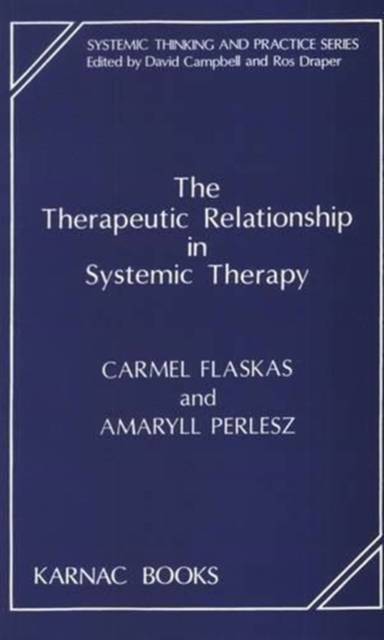
- Afhalen na 1 uur in een winkel met voorraad
- Gratis thuislevering in België vanaf € 30
- Ruim aanbod met 7 miljoen producten
- Afhalen na 1 uur in een winkel met voorraad
- Gratis thuislevering in België vanaf € 30
- Ruim aanbod met 7 miljoen producten
Zoeken
The Therapeutic Relationship in Systemic Therapy
€ 66,45
+ 132 punten
Omschrijving
Anyone following the recent developments of systemic thinking will be aware that activity has not been restricted to Europe and America. Systemic therapists and writers from both Australia and New Zealand are now making a major impact on the field, particularly in the way they explore therapy as an exchange between "real" people; with gender and with ethical values; and embedded within specific cultural experiences. These people are challenging the traditional way we see clients and the context of therapy. Over the years, systemic? therapists have theorized extensively about the client family as a system and have more recently addressed the use of self in therapy, but there has been very little attention paid to the therapeutic relationship between the two.
Specificaties
Betrokkenen
- Uitgeverij:
Inhoud
- Aantal bladzijden:
- 256
- Taal:
- Engels
- Reeks:
Eigenschappen
- Productcode (EAN):
- 9781855750968
- Verschijningsdatum:
- 31/12/1996
- Uitvoering:
- Paperback
- Formaat:
- Trade paperback (VS)
- Afmetingen:
- 145 mm x 229 mm
- Gewicht:
- 376 g

Alleen bij Standaard Boekhandel
+ 132 punten op je klantenkaart van Standaard Boekhandel
Beoordelingen
We publiceren alleen reviews die voldoen aan de voorwaarden voor reviews. Bekijk onze voorwaarden voor reviews.










